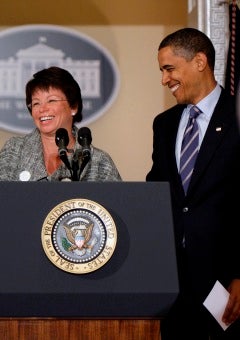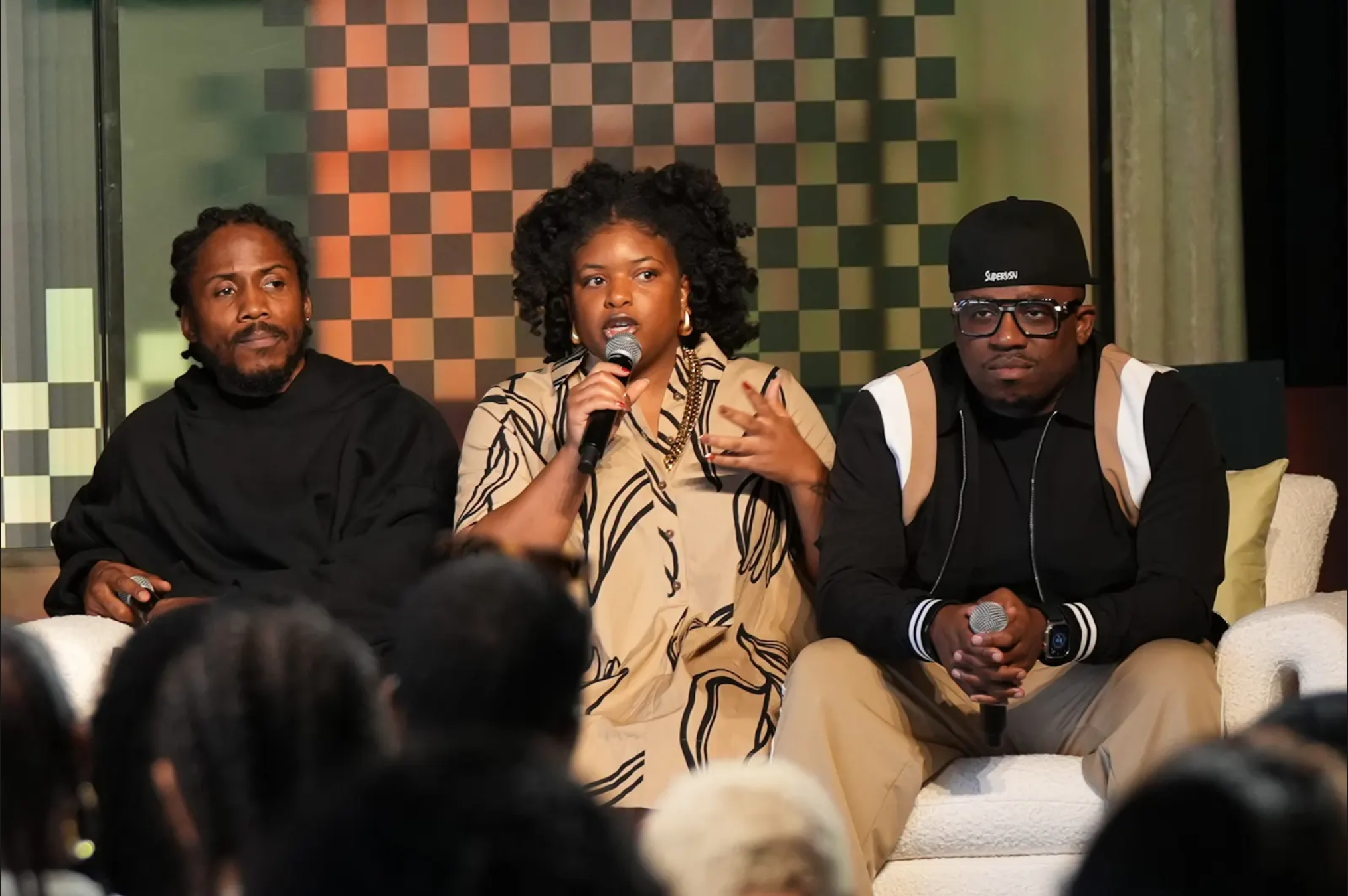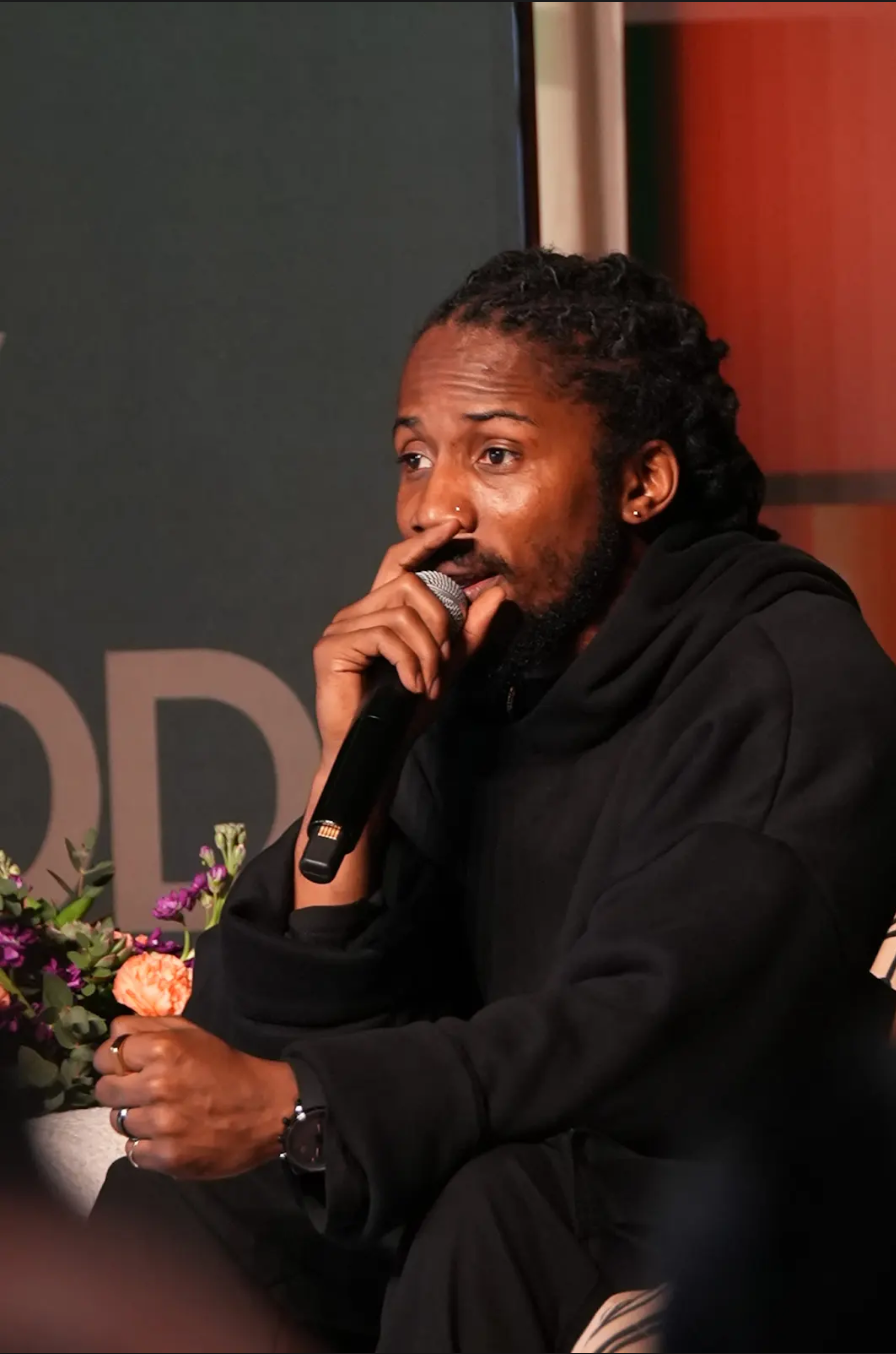
We caught up with Ms. Jarrett in Washington, D.C. for a detailed and candid conversation on how this deal impacts our nation, and particularly the African-American community which has been so hard hit by the recession, which began in 2007.
ESSENCE.com: Ms. Jarrett is this a good deal for America? Critics argue that there are too many spending cuts, and not enough tax revenue generation (even after the Bush Tax Cuts expire in 2012) in this deal; is that true, and if so, why did the President agree to what some are calling an “unfair deal”?
VALERIE JARRETT: Yes, this deal is good for America. Let’s keep in mind that if we had not reached an agreement as we did late last night, the US economy domestically and globally could have faltered severely. If we had defaulted for the first time in our history — the consequences would have had a catastrophic impact on the global economy. Our credit worthiness as a nation would have been downgraded; interest rates would have shot up, our bond holder interest rates would have gone up, the deficit would have increased, and more. So we averted disaster and that is very important.
To the second part of your question, the President had two conditions going in for him to sign off on a deal: 1.) He was looking for long-term certainty, in that he did not want to go through this again in 6 months. He was able to negotiate this successfully; we now have a 2.1 trillion-dollar debt ceiling authority given to the President through 2013. This was critical because the President was concerned that the ongoing stalemate with Congress was having a chilling impact on business growth and job creation. Creating jobs and getting the economy back on track is his #1 priority. 2.) The President was unwilling to bring down the deficit on the backs of seniors, the poor, the working middle class, and disabled persons in our nation. The trigger — specifically excludes Medicaid, S chip, food stamps, Social Security, Medicare, EITC, and other critical programs from cuts. The President wanted to do what was best for the country as a whole. Is this deal “ideal”? No. However, although the President promoted a grand bargain (which would have been more balanced with cuts and revenue generation) — he agreed to a more modest deal with fewer cuts and no revenues in order to keep the nation from defaulting on our obligations. This is now a two-step process. The first step is a down payment on bringing down the deficit and the next step, is for us to address as a nation the larger issue of tax reform, making government more efficient, and securing revenue generation in a fair and balanced way.
As to the Bush Tax Cuts, they expire at the end of next year. There will be savings there as well, and the President can veto tax cuts for the very wealthy (those making in excess of $250,000 per year), if need be. To be clear, the President does not believe that the current tax cuts are fair. So he is focused on those at the top — and asking them to pay their fair share. His goal is to better broaden the tax base, while protecting the fundamental pillars of who we are as a society. We are a country that helps the elderly, disabled, poor, disenfranchised, etc. When the Bush tax cuts expire- we will have an opportunity to reset the discussion around equity balance and shared sacrifice in America.
ESSENCE.com: Will we have more “Super Committees,” given that we just had one, and some of the recommendations being enacted, is that still on table as the President said last night?
JARRETT: Yes, we will. That is part of the new bill which provides for super committees. It will be a bi-partisan committee and the fall back cuts are 50% defense & security and 50% domestic. This only goes into effect if the commission does not come up with recommendation. This commission is unique in that they have a big incentive to come up with a plan; everyone is incentivized to work out something reasonable, bi-partisan and fair. It has an expedited review process the committee must report is recommendations by November 2011, and Congress has to act on the bill by December 23, 2011.
ESSENCE.com: The Black community has been very hard hit since 2007. A recent report from the U.S. Census was released last week and it identified a so-called racial “wealth gap.” This recession has been devastating for the Black community in particular — our readers are mostly Black women at ESSENCE, and we know many Black women are heads of households, keeping families together — what in this deal helps create more jobs in the Black community and specifically for Black families, or what other forward looking programs does the President have to address this serious challenge?
JARRETT: I want to be clear that President Obama understands that the African-American community has been disproportionately and severely hurt by the recession (which dates back to 2007 before President Obama took office in 2009). This has been a long and difficult journey for the African-American community. The President has several ways in which he is trying to address this challenge and bring relief immediately.
First, is education, which is a big priority for this Administration. Secretary of Education Arne Duncan deserves a lot of credit for the work he is doing with “Race for the Top” and with community colleges. So many people in the African-American community rely on community college for their advanced educational needs. We are working to strengthen those programs so that we can prepare people for the jobs of tomorrow. As I mentioned earlier, Pell Grants were maximized and preserved in this debt deal, as well as HBCU funding was set at 850 million over 10 years. These programs are critical for minority communities to be able to afford to attend college.
Secondly, by specifically having social safety net triggers built into this new legislation we were able to protect the vital services that Black and brown people (as well as all people) depend upon in our nation. In short, the President kept more damage from occurring in these communities by securing the social safety net in this new bill.
Thirdly, and this is important because people need and want to work in hard-hit urban communities. The President has been working on urban initiatives and an urban agenda that will create new 21st century innovative jobs. For example, we just granted 6 cities in America a total of $6.2 million dollars in partnership with the EPA to create green jobs in those cities and clean up site contamination for the benefit of the citizens of those cities. The President is very cognizant of how challenging life has been for the African-American community and he sees our cities as the nation’s economic engine. The EPA project we just discussed is just one of the initiatives we have in place.
As we work with communities across America we look at all the factors that help to strengthen that community. That ranges from housing, to health and human services resources, and new cutting-edge ways to jump start businesses and jobs from the ground up. The Federal Government under President Obama is working to re-orient the way it works with our urban centers. The President’s goal is to tailor programs to meet those communities needs; not the other way around. The President agrees that education, strong families, and job creation are all a part of the way in which we leverage our intellectual, financial, and human assets to create jobs and keep them in America’s cities. This agenda will be a great source of help and relief to distressed communities of color.
ESSENCE.COM: The President has been loudly criticized by some in the African- American community for not caring about the plight of Black and brown people in this economy. What say you to that? Does he care, and how is this debt deal a step in the right direction of helping to mitigate that perception by some?
JARRETT: It is very easy to comment from the sidelines. I would suggest that people who are concerned about the Black community roll up their sleeves and work with us to solve the challenges. We need the private sector, not-for-profits, and others to get involved and be involved in the solution. The President encourages everyone to feel that they are a part of this discussion and the solutions we all want to see implemented to help the African-American community rebuild wealth and create jobs in America. We believe this deal takes us in that direction as a first step for much more support to come.
Sophia A. Nelson is the author of “Black Woman Redefined: Dispelling Myths and Discovering Fulfillment in the Age of Michelle Obama,” in stores now.











